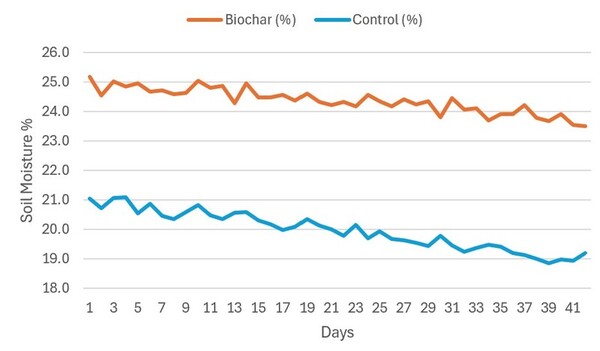
The authors looked at how pharmacokinetics changed depending on the use of an in vitro or an in vivo model.
Read More...In vitro dissolution and in vivo response of pseudoephedrine dosage forms

The authors looked at how pharmacokinetics changed depending on the use of an in vitro or an in vivo model.
Read More...Drought prediction in the Midwestern United States using deep learning

The authors studied the ability of deep learning models to predict droughts in the midwestern United States.
Read More...Quantum-inspired neural networks enhance stock prediction accuracy

The authors developed a quantum inspired model for stock market fluctuations.
Read More...A comparison of starches and plasticizers for biopolymer synthesis and degradation
Pressing filtration for extraction of cabbage dietary fiber and soluble components

Here the authors introduce pressing filtration as a novel, efficient, and low-energy method for extracting dietary fiber from cabbage, which successfully retains heat-sensitive nutrients and achieves a high fiber yield. The study demonstrates the scalability and economic viability of this technique for commercial use, highlighting that the resulting high-fiber cabbage powder can be incorporated into familiar foods like hamburger buns and beef patties without compromising taste or sensory quality.
Read More...Enhanced soil fertility through seaweed-derived biochar: A comparative analysis with commercial fertilizers

The study explored converting Gracilaria seaweed waste—known for releasing toxic hydrogen sulfide when decomposed—into biochar as a sustainable solution for waste management and soil improvement.
Read More...Evaluating the performance of Q-learning-based AI in auctions

Advertising platforms like Google Ads use AI to drive the algorithms used to maximize advertisers benefits. This study shows that AI does not adjust it strategy based on auction type and highlights the limitations of AI running without explicit guidance.
Read More...Population demographic patterns in PFAS-neurological health research

The authors analyzed racial and ethnic representation in studies on PFAS and neurological health outcomes.
Read More...C reactive protein and risk of neurological deficits and disability in patients with acute ischemic stroke

The authors looked at the correlation between C reactive protein levels and neurological deficits in patients who had suffered an ischemic stroke.
Read More...The correlation between the phase of the moon and the number of psychiatric patients admitted to the hospital

The authors looked at if there was any correlation between the phase of the moon and admissions for psychiatric concerns.
Read More...